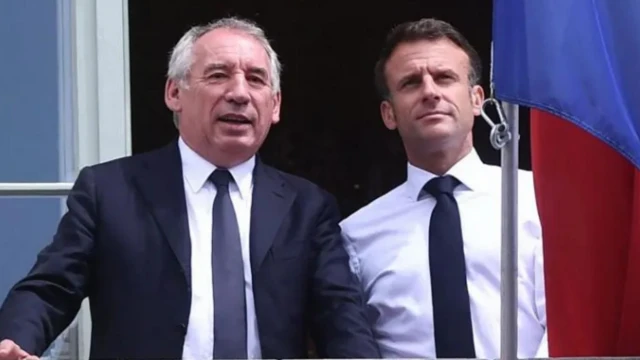French President Emmanuel Macron has appointed François Bayrou as Prime Minister .
This comes after an unprecedented parliamentary vote to depose the previous government last week.
Bayrou, 73, is a well-known personality in French politics and an important member of Macron’s centrist alliance.
His political background is regarded as important in efforts to restore stability in a split National Assembly.
Bayrou, who was recently cleared of allegations of misappropriation of European Parliament funds, now has the difficulty of guiding the country through a divided parliament.

He is anticipated to reveal his selection of ministers in the coming days.
The appointment of Bayrou comes in the backdrop of political chaos and instability in France.
The country recently voted on a no-confidence motion against Prime Minister Michel Barnier that ended his three-month term and further deepened the political crisis.
The motion was backed by both the left and the far-right. It followed Barnier’s controversial use of Article 49.3 of the French Constitution to pass the 2025 social security budget bill without a parliamentary vote. The move triggered no-confidence motions from both Opposition blocs.
Although Barnier, who headed Macron’s minority government, was hopeful that his administration would survive the vote.
Barnier emerged as the shortest-serving prime minister in modern French history. The motion against him marked the first successful no-confidence motion since 1962.
Barnier’s appointment as prime minister in September 2024 came after Macron’s centrist alliance suffered a major defeat in the legislative assembly elections.
In the wake of a landslide victory by Marine Le Pen’s far-right National Rally in the June European Union elections, Macron dissolved the National Assembly and called for snap elections.
Following Barnier’s removal, his 2025 budget proposal, which includes $60 billion in tax increases and spending cuts, is expected to undergo significant revisions.













